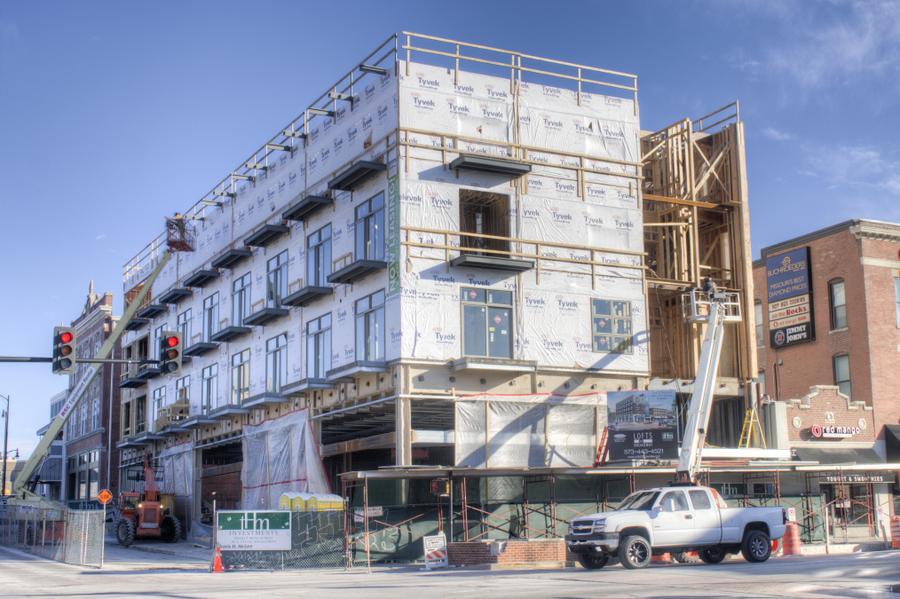
Columbia’s growth over the last several years is evident from heavier traffic, more downtown apartments and a new high school. The increase in downtown development (Brookside Apartments, the Lofts at 408 Ninth and many more apartment complexes under construction) has put stress on the town’s infrastructure, from the sewage system to the electrical grid.
However, the issue is not exactly new to Columbia. In spring 2014, petitions circulated to halt the Opus development that would put considerable strain on an already failing infrastructure system, according to an [April 2 Maneater article.](https://www.themaneater.com/stories/2014/4/2/residents-petition-against-development-agreement/)
When proposing the Opus development and several other complexes, council members had created a document that would have the complexes pay for part of the infrastructure repairs, according to an [April 30 Maneater article.](https://www.themaneater.com/stories/2014/4/30/second-agreement-proposed-Opus-group/) The petition struck down this agreement but Opus continued to develop, and the complex is currently under construction to be opened as District Flats in fall 2015.
Columbia Water and Light has kept tabs on the growth trend for several years. While downtown hasn’t seen irregular growth until recently, the fringes of the city have steadily become more urban. Water and Light spokesperson Connie Kacprowicz said the department has been watching the movement.
“We have a lot of reliability requirements from the federal government,” she said.
To keep up with customers and the State of Missouri’s guidelines, the company has been working on new substations in the southern part of town and building transmission lines to improve connectivity for the past several years. Currently, they are working on a new set of system switches, so that when one section of line goes out, workers can circumvent it and get power to those who need it.
But while Water and Light projects have slowly progressed, the downtown spike was a surprise. City Council expected this boom, but not nearly so soon.
“We’re holding our head above water,” Third Ward Councilman Karl Skala said.
Fourth Ward Councilman Ian Thomas said he is leery of starting new projects while current infrastructure is out of date, even as the city grows past its limits. A past bond in 2013 supported the maintenance and repair of the city’s sewer lines to the effect of $32.3 million. Thomas says that while the project isn’t a part of a necessarily speedy process, results are already showing by reducing storm water overflows by 50 percent.
“The City Council is moving forward to address the needs of the community,” Fifth Ward Councilwoman Laura Nauser said.
Nauser said a lot of what happens next to Columbia depends on the future April ballot. Whether to improve what the city already has, or to expand with new construction, is still up in the air.
Until such decisions are made, residents can expect more building delays and higher taxes for new structures. Yet, things could be much worse, Skala said.
“We’re covered for now,” he said.